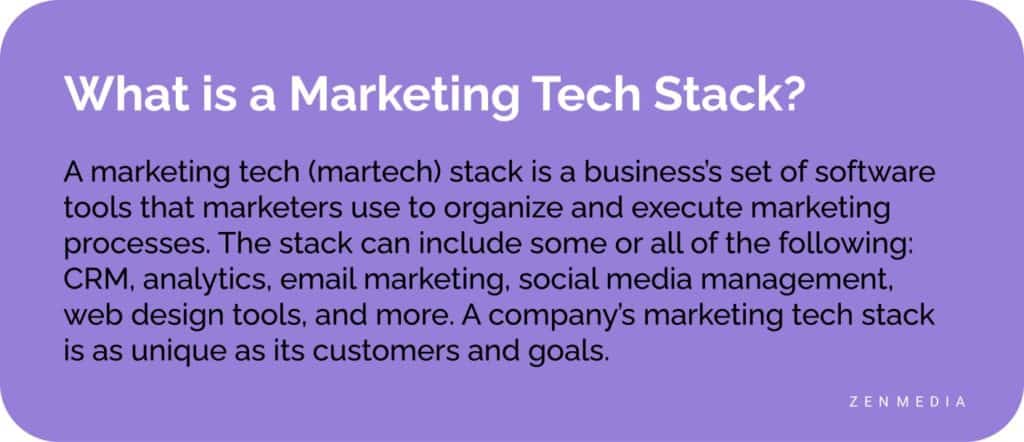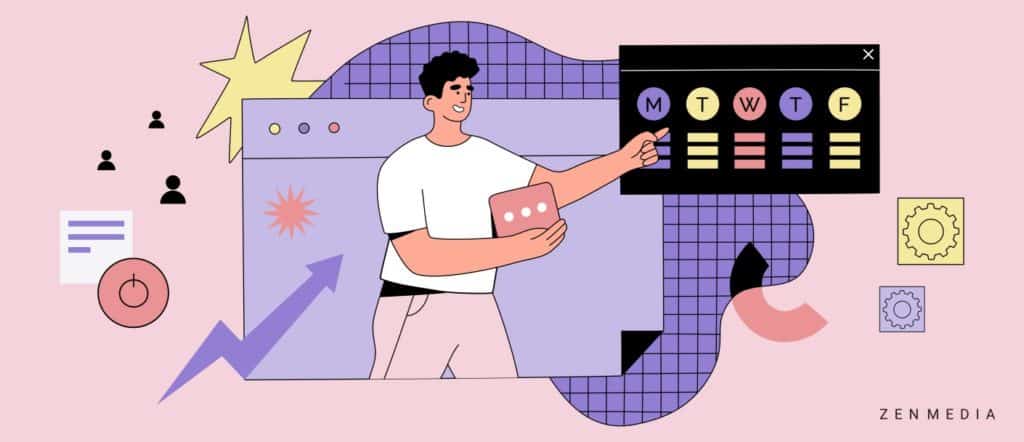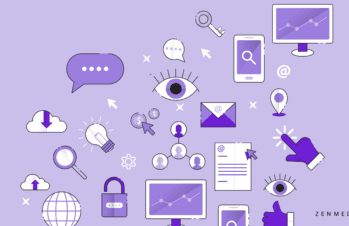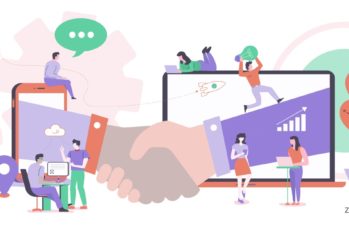We can thank IBM’s Watson and Apple’s Siri for popularizing artificial intelligence (AI) and giving us access to technology that used to be reserved only for the mind’s science fiction writers. AI has come a long way since those early days, and every industry seems to have no AI and machine learning tools to optimize and improve business processes.
This is especially true for marketers—who are finding ways to use AI in creative marketing endeavors as well as data analysis—with both consumers and businesses reaping the benefits.
Related reading:
- AI in B2B Marketing: Where Human Intelligence Meets Martech Intelligence
- AI in Marketing: Breaking Down the Pros and Cons
There are a plethora of tools available today that provide some sort of artificial intelligence capability to help you create, curate, automate, optimize, personalize, and more. Take the finance industry for example. Machine learning for finance has become increasingly popular, with companies using it to analyze vast amounts of data, detect patterns, and gain valuable insights that can help them make informed decisions and optimize their operations. Every business can leverage some form of machine learning to give leaders insights and boost its marketing performance.
So let’s take a look at the different categories of AI available now and how B2Bs can dip their toe in with some interesting tools.
What is a Marketing Tech Stack?
A marketing tech (martech) stack is a business’s set of software tools that marketers use to organize and execute marketing processes. The stack can include some or all of the following: CRM, analytics, email marketing, social media management, web design tools, and more. A company’s marketing tech stack is as unique as its customers and goals.

7 Types of AI Tools for Every B2B
Lead Generation
With so much data readily available, it’s easy for marketers to get overwhelmed and make costly mistakes. For B2Bs, generating leads can be even harder due to their complex (and often extended) sales cycles.
AI tools can help you keep on top of lead generation and sales conversion by easily streamlining data, helping salespeople manage prospects throughout the funnel, and showing marketing and sales teams which leads are the most qualified. Some of these tools can even be used in conjunction with CRM systems and help generate leads based on information stored within the system. Examples of these tools include:
- Zapier: This service allows users to set up zaps, or automated workflows, between apps and services like Google Sheets and Slack.
- Salesforce Einstein: Using artificial intelligence and machine learning, Einstein helps sales teams find their next best opportunity.
- Leadspace: Leadspace uses natural language processing (NLP) to parse structured data from web pages. The resulting structured data is then converted into an industry-standard format that marketers can import into their marketing automation software or CRM system.
Content Creation Tools
AI tools can help B2Bs with content creation in several ways—but the big sell for most marketing teams is increasing the volume of content created. For example, AI-assisted content generation tools can generate blog posts and articles faster than most human writers and designers can produce. This helps copywriters complete assignments more quickly and economically.
Beyond written content, there are AI tools that create images based on descriptions, which can be valuable for creating unique visual content.
However, the human element is still crucial even with AI content creation tools. Brands should always have a human content strategist who can relay the goals of each piece, the key points, and more, so that the AI is starting off on the right foot. Additionally, an editor with a keen eye is still vital to the content curation and creation process both to correct errors (even robots make mistakes) and to ensure that there is a human touch—be it humor, empathy, or wit—so that readers remain engaged. Some examples of content creation AI tools include:
- Jasper: This AI tool can write everything from blog posts to video scripts to Facebook ads. There are many like it (including Copy and Anyword).
- Grammarly: Using AI, Grammarly helps catch all those pesky grammar and syntax errors.
- Midjourney: This AI image tool creates images based on your written description. Ever wondered what a balloon animal in the style of Pablo Picasso would look like? Now you can find out.
All-in-One CRM Tools
Customer relationship management (CRM) tools help businesses organize and manage relationships with customers and prospects in an automated way. This can be done through chatbots, predictive analytics, data mining techniques, and more.
AI tools for CRM management can help B2Bs understand their customers, identify and target prospects more precisely, improve customer experience and satisfaction, cut down on time spent on routine tasks, and make marketers’ jobs easier. Additionally, some all-in-one CRM tools include digital training components for new clients and a hub for all relevant content. Some examples of CRM AI tools include:
- Oracle Digital Assistant: This AI is a platform for creating conversational interfaces or chatbots that guide your customers through their post-purchase journey.
- Zoho: A powerful all-in-one platform for a variety of CRM needs
- ExpertusONE: An AI-powered learning management system that helps onboard and upskill employees, while enabling collaboration and communication.
Automation Tools
The simplest AI tool is automation, which can be applied in a variety of ways. It enhances B2B marketing by saving time, reducing errors, and providing a consistent message. For example, automating previously manual processes like scanning documents is a crucial digital transformation for every B2B. Managing paper documents nowadays without digital file backups is risky—and manually inputting data from physical to digital format leaves room for human error, which can be costly, especially in sectors like B2B tech or healthcare.
AI-powered automation tools can help with lead management, prospecting, and follow-up. They can also help with sales tasks like deal management and forecasting. These tools are meant to save time and allow you to focus on strategic marketing initiatives that will drive leads and conversions. Some examples include:
- Omnisend: A multi-channel automation AI that allows you to schedule messages and sequences through all kinds of communication channels—from email to Facebook messenger to SMS and more
- Hootsuite: One of many social media automation tools that allows you to schedule your content, curate content from its private library, and review crucial analytics on the platform
- Shoelace: A “customer journey retargeting” tool that shows ads to the right customer at the right time, enabling marketers to automate ads throughout every stage of the buyer’s journey
Optimization Tools
In some cases, AI is taking over the optimization process for marketers, allowing for more sophisticated changes based on real-time data. For instance, some AI tools can detect a negative sentiment in a customer’s tweet and automatically send a response or offer help. Others can tell marketers which keywords to use for the best B2B SEO. That content optimization can help with conversion rates and lead to higher ranking in Google’s search engine results pages (SERPs).
Here are a few examples of AI that can help you optimize your content:
- Google Optimize: A freemium web analytics and testing tool that allows you to A/B test your website
- Adobe Audience Manager: This tool takes content marketing programs through an automated workflow, optimizing audience segmentation, personalization, and more.
- Campaign Budget Optimization: A feature on Facebook and Instagram Ads that automatically manages your campaign budget across ad sets to get you the overall best results
Personalization and Segmentation Tools
AI can help with personalization and segmentation by mapping out the customer journey and providing suggested content that is tailored specifically for each person. Personalization aims to provide a more relevant, memorable, and enjoyable experience for your audience. It’s important not to overwhelm your customers with too many irrelevant messages or content about their interests. AI tools can help marketers ensure they are only sending the right message at the right time and in the right place.
Some examples include:
- Dynamic Yield: A digital customer experience brand that delivers personalized, optimized, and synchronized content
- Boomerang: A Gmail plugin that gives you automated reminders when contacts open up emails from you
- Selligent: A tool that allows B2Bs to track down prospects using location data as well as customize communications based on individual preferences
Analytics Tools
With a full understanding of their customer’s behavior, marketers are empowered to make the right marketing decisions. To have that understanding, they need a good analytics tool.
Using AI tools like predictive analytics and automated reporting to help B2B marketers analyze their data leads to a better understanding of what digital marketing campaigns work best for their audience, which helps them cut back on wasted spending and ultimately increases ROI. As AI continues to evolve, we can expect the process of analytics for B2Bs will too.
Some examples include:
- Resonate: An AI that aims to help marketers cut wasted ad spend by using predictive analytics
- Baremetrics: Augmentation, segmentation, and personalization in one analytics tool for SaaS and subscription-based businesses
- Polymer: This AI instantly analyzes your spreadsheet and transforms the data into actionable insights.
The time to invest in AI is now. AI will change how we live and do business in the future, but it is already changing the way we work—and what our customers expect from us. B2Bs can get started by reviewing their processes and investigating these seven types of AI tools. By comparing your processes to the tools available, you may find that you can save time and money, or gain better insights, by updating your company’s martech stacks.
Need some help along the way? Reach out. We love this stuff.




